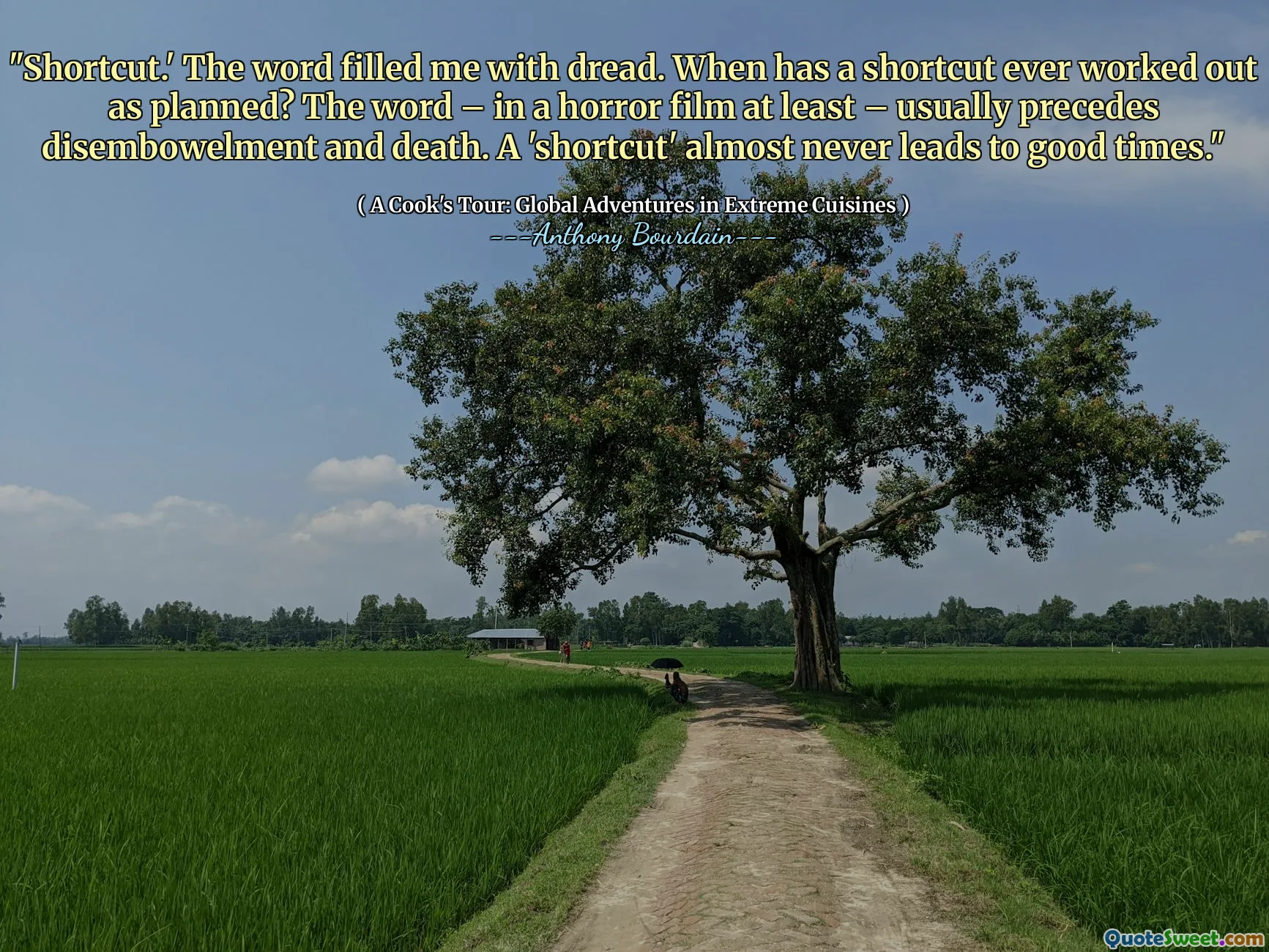
"Shortcut.' The word filled me with dread. When has a shortcut ever worked out as planned? The word – in a horror film at least – usually precedes disembowelment and death. A 'shortcut' almost never leads to good times."
The quote poignantly captures a universal skepticism toward shortcuts, using vivid imagery that conjures up the fear and uncertainty often associated with taking the easier route. The immediate association of the term ‘shortcut’ with dread and terrifying consequences, especially within the context of a horror film, is a brilliant metaphor. It highlights our inherent understanding that seemingly quick and easy solutions tend to come with hidden costs or dangers.
From a very practical standpoint, shortcuts are tempting because they promise to save time, effort, and energy. However, many of us have experienced the fallout of such choices—mistakes, setbacks, or unintended consequences that turn a well-meaning shortcut into a lesson in patience and perseverance. The image of disembowelment and death in horror films can be interpreted metaphorically to express the idea of significant harm or failure. In real life, these consequences might be less dramatic but still impactful, such as damaged relationships, compromised integrity, or lost opportunities.
This skepticism extends beyond just literal shortcuts and can apply to many aspects of life—work, personal growth, relationships, and creativity. It subtly warns against the lure of easy fixes or cutting corners, encouraging a more mindful and perhaps more traditional approach. By invoking the horror film scenario, the quote also taps into a cultural understanding: narratives where shortcuts usually trigger the protagonist’s downfall are a recurring trope, reinforcing the cautionary tale.
Reading this through the lens of Anthony Bourdain's work, especially in a book like "A Cook's Tour: Global Adventures in Extreme Cuisines," adds further layers. Bourdain was known for valuing authenticity, depth, and experiencing things fully rather than superficially. In culinary arts and travel, taking shortcuts often means missing out on the richness of experience. Bourdain’s perspective makes the quote resonate as a call to embrace the longer, more arduous path that leads to genuine adventure and meaningful insight, rather than succumbing to the illusory appeal of a shortcut that ultimately leads to disappointment.
In sum, this quote reminds us of the value of patience, the importance of process over outcome, and the risks entwined in the pursuit of convenience. It is also a darkly humorous reminder to be wary of expectations and to respect the journey, both literal and metaphorical, in whatever endeavors we undertake.






